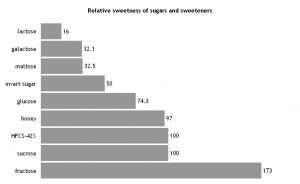Beta-blockers ‘may lower dementia risk’

Beta-blockers slow heart rate to reduce workload and help the heart pump more efficiently
Taking beta-blocker drugs may cut the risk of dementia, a trial in 774 men suggests.
The medication is used to treat high blood pressure, a known risk factor for dementia.
In the study, which will be presented at the American Academy of Neurology’s annual meeting in March, men on beta-blockers were less likely to have brain changes suggestive of dementia.
Experts say it is too early to recommend beta-blockers for dementia.
The findings are preliminary and larger studies in men and women from different ethnicities are needed to see what benefit beta-blockers might offer.
Continue reading the main story
“Start Quote
These results are exciting, especially since beta blockers are a common treatment for high blood pressure”
Study author Dr Lon White Pacific Health Research and Education Institute in Honolulu
People with high blood pressure are advised to see their doctor and get their condition under control to prevent associated complications like heart disease, stroke and vascular dementia.
Brain blood flow
Having high blood pressure may damage the small vessels that supply the brain with blood.
Blood carries essential oxygen and nourishment to the brain and without it, brain cells can die.
Vascular dementia is the second most common cause of dementia after Alzheimer’s disease and can occur if blood flow to the brain is reduced.
Other research in a much larger sample of men – 800,000 in all – suggests another type of blood pressure drug known as an angiotensin receptor blocker (ARB) may cut dementia risk, including Alzheimer’s disease, by as much as 50%.
The latest work in 774 Japanese-American men found that all types of blood pressure medication were better than no treatment in terms of signs of dementia in the brain – brain shrinkage and tiny areas of brain tissue damage caused by poor blood supply – noted at autopsy after death.
However, men who had received beta-blockers as their only blood pressure medication had fewer abnormalities in their brains than those who had not been treated for their hypertension, or who had received other blood pressure medications, the University of Hawaii team found.
Men on beta-blockers and other medications also had fewer brain abnormalities, but not as big a reduction as that seen in the men on beta-blockers alone.
In the study, 610 of the men had high blood pressure or were being treated for high blood pressure.
Study author Dr Lon White said: “With the number of people with Alzheimer’s disease expected to grow significantly as our population ages, it is increasingly important to identify factors that could delay or prevent the disease.
“These results are exciting, especially since beta-blockers are a common treatment for high blood pressure.”
Dr Simon Ridley, head of research at Alzheimer’s Research UK, said: “Hypertension is a known risk factor for Alzheimer’s and other causes of dementia, and keeping high blood pressure in check could be important for preventing these diseases.
“This study suggests a link between the use of beta-blockers and fewer signs of dementia, but as the results of this study have yet to be published in full, it’s not clear what caused this link. It’s important to note that this study only looked at Japanese-American men, and these results may not be applicable to the wider population.
He said a better understanding of the links between high blood pressure and dementia could be crucial for developing new treatments or approaches to prevention.
“With 820,000 people affected by dementia in the UK, and that number increasing, we urgently need to find ways to prevent the diseases that cause it – that requires a massive investment in research,” Dr Ridley added.


 Beta-blockers slow heart rate to reduce workload and help the heart pump more efficiently
Beta-blockers slow heart rate to reduce workload and help the heart pump more efficiently
